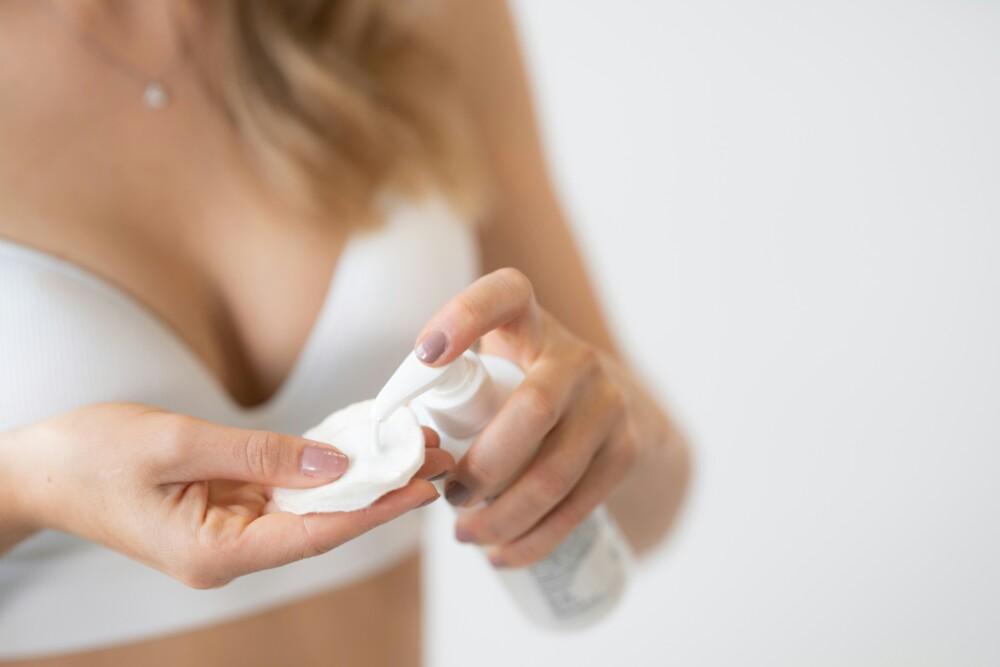How Do Hormones Affect Skin Care for Women: Key Insights from a Naturopathic Perspective
Hormones are chemical messengers that affect everything from skin hydration to oil production and inflammation. When those hormones are unbalanced, you experience skin dryness, premature aging, and acne. Conventional dermatology addresses the symptoms, but naturopathic care is a better choice for obtaining balance from within.
Urban areas like Manhattan expose citizens to various pollutants, with some acting as endocrine disruptors. With time, this affects the resilience of the skin. Natural strategies that include hormone, liver and gut balancing address breakouts and dryness from the inside, preventing their appearance.
Supporting liver-gut detox and using cycle-aligned herbs can restore hormonal balance and clear your skin. The goal is to support toxin removal from the body in a safe and strategic way when necessary. This is an overlooked step in many conventional dermatology offices.
What Are the Primary Hormones Impacting Women’s Skin and Their Mechanisms?
The primary hormones that affect a woman’s skin are estrogen, progesterone, and cortisol. Their level is an indicator of the skin’s health. Since women’s hormones fluctuate with every cycle, the skin feels all those internal imbalances.
Root-cause testing is essential to find the imbalances among hormone fluctuations. It looks for the following hormones when determining a woman’s skin health:
- Estrogen: Studies by Julie Thornton at the University of Bradford show that estrogen plays an important role in collagen and elastin production.
- Progesterone: Responsible for balanced sebum production and skin elasticity.
- Testosterone: Stimulates oil glands around the jawline.
- Cortisol: The “stress hormone” that slows healing and worsens inflammation.
- T3 and T4 Thyroid Hormones: They regulate skin cell turnover.
Naturopathic care focuses on natural modulation. Lifestyle audits are more effective than quick fixes, as they promote long-term balance. Holistic hormone treatments in NYC restore your inner balance and make the skin more resilient.
How Does Estrogen Contribute to Skin’s Moisture and Elasticity?
Estrogen contributes to skin moisture and elasticity by offering naturopathic collagen support. The body loses an average of 1% of its ability to produce collagen per year once you reach your 20s.
Your body needs estrogen to keep the barrier strong, and plant-based phytoestrogens offer deeper resilience.
Below are several daily naturopathic incorporations to promote collagen:
- Add flaxseeds in meals for collagen support
- Consider a liver detox with leafy greens and dandelion root tea
- Use adaptogens like Shatavari to support the endocrine system
- Consume omega-3 fatty acids for lipid barrier support
- Consume fermented soy for its estrogen-mimicking isoflavones
A healthy premenopausal woman should have 30 to 400 pg/mL of estradiol in her body. The exact amount depends on her cycle, which is why testing is essential for elasticity maintenance.
What Changes Occur with Estrogen Drops in Perimenopause?
Estrogen drops lead to numerous perimenopause changes that affect skin elasticity, texture, and moisture. Below are common signs, along with Manhattan perimenopause strategies to fix them:
- Skin Thinning: Silica-rich foods, vitamin C, and bone boost collagen
- Dryness: Healthy fats like avocado, olive oil, and hydrating herbs reduce flakiness
- Sagging: Phytoestrogen-rich foods mimic estrogen and promote collagen production
- Slow Skin Healing: Gut repair protocols (e.g., probiotics) improve nutrient absorption
Naturopathic medicine promotes better reduction of skin aging signs and naturally restores its long-term vitality.
Why Are Phytoestrogen-Rich Foods Essential for Estrogen Balance?
Phytoestrogen foods can support estrogen balance because they safely mimic estrogen. Isoflavones mostly come from soy and other legumes.
Below are some good sources and how to consume them:
- Fermented Soy: Bioavailable isoflavones that don’t disrupt natural production. Found in miso or tempeh, which can be used in soups or stir-fries.
- Chickpeas: Phytoestrogens improve gut estrogen clearance and can be used to create hummus or soups.
- Red Clover: Rich in isoflavones and can be used to brew tea.
- Sunflower Seeds: Rich in vitamin E and phytoestrogens that support skin repair and hormone balance. It can be used for hormones and snacks.
- Licorice Root: Rich in glabridin, which modulates estrogen. It can be consumed as herbal tea. Contraindicated if you are on a blood pressure medication.
- Apples: Rich in pectin and phytoestrogenic polyphenols that promote gut support. You can add them to oatmeal, bake a dessert, or make a fruit salad.
Incorporate these in your diet to promote natural estrogen balance essentials. Combine them with gut health support and mindfulness to reduce cortisol and have glowing skin.
Why Do Androgens Often Cause Excess Oil and Acne?
Androgens (e.g., testosterone) often cause excess oil and acne because they overstimulate sebaceous glands and increase cell turnover. This leads to higher risks of clogged pores and acne development.
Looking at conditions such as PCOS through a naturopathic lens, it shows that they reflect a deep imbalance. This includes blood sugar regulation, liver detox, and blood sugar regulation.
Expect the following symptoms for androgen imbalances:
- Oily skin and enlarged pores
- Persistent chin, jaw, and upper back acne
- Carb cravings and energy crashes
- Thicker facial hair
- Irregular menstrual cycles
Low-glycemic foods and fiber-rich veggies regulate blood sugar, whereas spearmint tea reduces testosterone.
Adaptogenic herbs like ashwagandha and holy basil (tulsi) have been studied for their effects on stress and hormone balance. Ashwagandha has some of the strongest research. Studies show it may lower elevated cortisol (your main stress hormone) and, in men, even support healthy testosterone levels. Holy basil has been shown in smaller studies to promote calm and resilience under stress, with some evidence of helping regulate cortisol, though more human research is needed.
How Can Herbal Anti-Androgens Promote Clear Skin?
Herbal anti-androgens are effective for clear skin promotion because they change how the body responds to androgens. They can offer a better solution to traditional pharmaceuticals because they are gentle and address the root cause.
Below are some protocol ideas to try out:
- Drink 1-2 cups of spearmint tea every morning for 4 weeks to improve testosterone.
- Consume 500-1000 mg of reishi mushrooms per day for immune balance.
- Use nettle root infusions for sebum control 3-4 times a week.
- Consider 30-40 drops of chaste tree tincture to normalize your hormonal rhythm.
Follow this protocol for at least 12 weeks to get full benefits. Personalized approaches holistically target excess androgen.
What Lifestyle Factors Amplify Androgen Effects on Skin?
Chronic urban stress, high-glycemic diets, inadequate sleep, and pollution amplify the androgen skin effects. Below are some ways to counter it:
- Urban Stress: Breathwork, blue light exposure reduction, and adaptogenic herbs
- High-Glycemic Diet: Switch to a protein-based, low-glycemic diet
- Disrupted Circadian Rhythm: Consider herbs like chamomile, lemon balm, or valerian tea to get a full night’s sleep
- Pollution: Switch to non-toxic skincare and consume detox foods (e.g., cruciferous veggies)
These look like simple tricks, but they reduce lifestyle amplifiers little by little.
What Role Does Progesterone Play in Skin Calmness and Barrier Strength?
Progesterone has an anti-inflammatory effect, and a deficiency leads to higher skin sensitivity. Naturopathic boosters like cycle tracking promote a good production of progesterone, especially with the right treatment.
Several boosters to control progesterone production are:
- Cycle tracking for pinpointing deficiencies
- Vitamin B6 for progesterone synthesis
- Zinc for balanced ovulation
- Maca root for a nourished endocrine system
- Limit caffeine and alcohol to preserve B vitamins
Herbs like chaste berry tree and dandelion root also help progesterone production in the right regimen. Get a plan from a naturopath to promote skin calmness and preserve barrier strength.
How Do Hormonal Shifts Across Life Stages Transform Skin Care Requirements?

Hormonal shifts transform skincare requirements because they affect your collagen production, skin hydration, and oil regulation. These changes in balance lead to excess pigmentation, dryness, and acne.
Here’s how the life stages transform your skin care requirements:
- Puberty: During the puberty years, androgens increase, and excess oil and inflammation worsen acne. Limit sugar and consume zinc-rich foods to control inflammation.
- Menstrual Years: Now, estrogen and progesterone levels fluctuate monthly, causing sensitivity and breakouts. Cycle tracking anticipates your needs. You can use primrose oil to reduce inflammation, and chaste tree with vitamin B6 to support progesterone.
- Perimenopause: This is when estrogen declines and progesterone dips, causing elasticity loss and pigmentation. Try to incorporate phytoestrogens and adaptogens through seed cycling for gentle balancing.
- Postmenopause: Right now, estrogen drops and progesterone stays very low, causing wrinkles and skin fragility. During these years, use ingredients like bone broth or vitamin C to support collagen production.
Regular skincare adaptation will also encourage resilience, balance, and long-term radiance.
What Skin Transformations Happen During Menstrual Cycles and Pregnancy?
The skin goes through cyclic and pigmentation changes, such as oily skin, breakouts, and hydration issues. Some women experience skin darkening and stretch marks.
High-stress environments like Manhattan can influence our hormones. Studies at Universität Innsbruck show that 99% of the world population lives in areas where pollution exceeds WHO limits.
Here are the menstrual cycle phases and their effects:
- Phase 1: Follicular: The estrogen rises, and collagen synthesis increases
- Phase 2: Ovulation: Estrogen levels peak, but the testosterone surge causes acne
- Phase 3: Luteal: Progesterone goes up, leading to oiliness
- Phase 4: Bleeding: Progesterone and estrogen drop, causing dullness
During pregnancy, there are some common patterns we see in certain trimesters. In the first, acne flares are common, the second has been associated with “pregnancy glow,” and the third, dryness and stretch marks become more noticeable. Incorporate energy-boosting cycle syncing for each phase to maintain a balance.
How to Align Skincare with Cycle Phases Naturally?
Women should align their skincare with cycle phases naturally by following a cycle phase alignment routine. The natural skincare tips for each phase are:
- Gentle exfoliants and collagen support (lactic acid, vitamin C products)
- Antioxidant botanicals (grape seed extract and green tea)
- Azelaic acid to reduce oiliness and manuka honey to minimize inflammation
- Chamomile balm and calendula masks for skin strengthening
It’s best to talk with a naturopath to determine the appropriate route. Studies at the Catholic University of Murcia (UCAM) show that more than 61% of women experience hormonal imbalances caused by contraception.
Can Herbal Remedies Mitigate Pregnancy-Related Skin Issues?
Herbal remedies mitigate pregnancy skin issues by soothing the skin and restoring hormonal balance. These are:
- Licorice root
- Chamomile
- Calendula
- Rosehip Seed Oil
- Turmeric
All options are safe for melasma, which is common during pregnancy. Studies at University Hospital Sestre Milosrdnice, Zagreb, suggest that 50-79% of women experience “pregnancy mask.”
Always talk to your doctor if these herbs are appropriate for you or have any interactions with any supplements, medications, or therapies you are doing.
How Does Menopause Accelerate Skin Aging and What Counters It?
Menopause acceleration leads to skin aging because it causes a decline in estrogen. This reduces natural collagen production, causing thinning skin. Air pollutants in NYC increase oxidative stress, worsening the symptoms.
We’ve listed some common effects and their naturopathic counters:
- Collagen Depletion: Marine collagen peptides, vitamin C, silica-rich herbs, and bone broth
- Hydration Loss: HA serums, shea butter, omega-3 fatty acids, licorice root extract
- Slow Cellular Turnover: Zinc, B-complex vitamins, retinol
Products should be alternated based on the luteal phase. Talk with a naturopath for screening and a good routine.
Why Prioritize Antioxidants in Menopausal Skin Care?
Antioxidants are a priority in menopausal care because estrogen depletion reduces the skin’s defenses. This makes it more vulnerable to stress from Manhattan pollution and high UV levels.
The main benefits of antioxidants are:
- Neutralization of free radicals
- Reduction of excess pigmentation
- Improved texture and firmness
- Improved skin lipid barrier
- They soothe inflammation
The best sources of protection include vitamin C and E, green tea extract, grape seed, CoQ10, and turmeric. The effects show up after long-term use.
How Do Adaptogens Help with Menopausal Stress on Skin?
Adaptogens help with menopausal stress because they regulate cortisol production. Cortisol is known as the “stress hormone,” and increased levels break down collagen. This leads to thinner skin, wrinkling, and sagging.
These adaptogens are effective for preventing adrenal burnout:
- Ashwagandha
- Rhodiola crenulata
- Panax Ginseng (can cause anxiety in more anxiety prone people)
- Holy basil
A pro tip is to pair these adaptogens with antioxidant creams. This offers both internal and external antioxidant support.
What External Disruptors Exacerbate Hormonal Effects on Skin?
Hormonal effects on the skin are exacerbated by external disruptors like air pollution, OTC skincare, and blue light. This is common for the urban setting in NYC.
The most common external disruptors are:
- Air pollution that triggers oxidative stress
- Fragrance chemicals that trigger inflammation
- Blue light that raises cortisol
- Endocrine-Disrupting Chemicals (EDCs) that disturb hormonal balance
- Non-organic pesticides that exacerbate hormonal production
- UV exposure that decreases collagen
- Chlorinated tap water that worsens dryness
- Chronic stress that constantly increases cortisol
Detox treatments, antioxidant skincare, and herbal remedies are effective for restoring hormonal pathways. A naturopath can create your custom routine.
How Do Endocrine Disruptors in Products Affect Hormone-Skin Dynamics?
Endocrine disruptors in chemicals interfere with regular hormone functions by mimicking or blocking the signals.
Some common endocrine disruptors are parabens, phthalates, oxybenzone, triclosan, and BHA/BHT.
Consider the following substitutions for a naturopathic approach:
- Potassium sorbate instead of parabens
- Products with pure essential oils
- Mineral-based sunblock
- Tea tree oil or witch hazel instead of triclosan
- Vitamin E and rosemary extract instead of BHA/BHT
Products vetted by CertClean or the Environmental Working Group (EWG) have limited amounts of endocrine disruptors.
What Clean Beauty Standards Should Guide Choices?
Clean Beauty Standards should guide choices because they prioritize endocrine-safe ingredients, non-toxicity, and biocompatibility. Here are 5 criteria they consider:
- Formulas that don’t disrupt hormones
- Full transparency of the ingredients list
- Compatibility with the skin barrier
- Biodegradability and low toxicity to the environment
- Third-party certifications
These standards ensure the products are safe for the skin and will not disrupt your body’s hormones.
Why Is Gut Health Integral to Hormonal Skin Disruptions?
Gut health is integral to hormonal skin disruptions because the gut microbiome regulates the hormones. Studies by the Oxford Academic Group say that the microbiome interacts with hormone-secreting enteroendocrine cells (EECs), which secrete up to 20 hormones.
The ways through which the gut connects with hormonal disruptions are:
- Systemic inflammation and leaky gut syndrome
- Dysbiosis and altered androgen activity
- Estrobolome dysfunction
- Cortisol imbalances that affect the gut
- Poor nutrient absorption
All these factors lead to skin disruptions like acne, excess pigmentation, and frequent irritations. The gut’s hidden acne role is deeply rooted in the metabolism.
How to Support the Gut for Better Hormone Detox?
Women can support their gut for better hormone detox by incorporating probiotics, prebiotics, and more. This restores microbiome balance, improving overall wellness.
Below are several steps for gut function support:
- Use probiotic foods to restore balance in estrogen-clearing bacteria
- Consume prebiotic foods to replenish good bacteria
- Use herbs like artichoke leaf and dandelion root to support bile flow
- Support the gut-liver axis with cruciferous vegetables
- Reduce gut irritants like dairy, processed sugar, and alcohol
A long-term strategy offers gut support and gives you a hormonal detox strong enough to preserve skin health.
How to Build an Effective Naturopathic Hormone-Balancing Skin Routine?
You can build an effective naturopathic routine for your skin by understanding your needs. Use lab panels or clinical diagnosis to determine the imbalance and create a routine based on the results.
You can use gentle cleansers with herbs like licorice root and green tea, and apply a rose water toner to balance your pH. Add an antioxidant serum based on niacinamide or vitamin C and moisturize with creams rich in omega-3 oils. Finally, apply a detox mask (activated charcoal or zeolite clay) twice a week.
Consistency is key to getting results. You should also customize the daily routine based on your cycle.
What Natural Ingredients Address Specific Hormonal Skin Concerns?
Natural ingredients such as omega-3 fatty acids, zinc-rich food, and more address specific concerns like dryness and acne. Here’s what you should use based on your issue:
- Hormonal Acne: Zinc, licorice root, tea tree oil. Licorice root C/I if you are on blood pressure medication.
- Thinning Skin: Hyaluronic acid, evening primrose oil, red clover extract
- Redness and Sensitivity: Chamomile, aloe vera, and ashwagandha extract
- Dullness and Pigmentation: Turmeric, vitamin C, and mulberry extract
These should be paired with a healthy diet and an active lifestyle for better efficiency.
Why Choose Plant-Derived Over Synthetic?
Plant-derived choices are gentler and have a lower potential for side effects compared to their synthetic counterparts. They support natural hormonal balance and skin health while being environmentally friendly.
Here are the main benefits of plant-derived options:
- Hormonal Biocompatibility: Plants mimic the body signals without disrupting, whereas synthetics cause imbalances.
- Rich in Nutrients: Plant-derived choices are rich in antioxidants and enzymes, whereas synthetic ones lack them.
- Sustainability: Plant sources are biodegradable, whereas synthetic options add to pollution.
- Lower Sensitivity: Natural products are gentle, whereas synthetic alternatives have emulsifiers that trigger allergies.
Studies by A. Panico at the University of Salento show that 52.3% of products contain synthetic fragrances and 60% feature synthetic preservatives. It’s important to check the ingredient lists, as many have high toxicity concentrations.
How to Incorporate Herbal and Oil Therapies?
You can incorporate oil and herbal therapies through topical application and internal support. Some of the most popular methods for oil incorporation are:
- Facial Steams: Add chamomile and calendula to hot water and hold your face over the pot, with a towel on your head.
- Spot Treatment: Dilute tea tree oil in jojoba oil and apply it over the acne spots.
- Oil Infusions: Infuse herbs like red clover and burdock in a base oil (almond or olive) and use it as a serum or cleanser.
- Teas and Tinctures: Drink chasteberry, spearmint, or licorice tea to balance your estrogen and testosterone levels.
These treatments can be prepared at home, but it’s important to do it under the guidance of a naturopath. This ensures you use the right blend.
What Lifestyle Optimizations in Manhattan Improve Hormonal Skin Health?
Common lifestyle optimization options to improve hormonal health include good nutrition, movement, stress reduction, and more. Some urban-adapted optimization methods with a naturopathic touch include the following:
- Have meals that balance blood sugar levels. This includes foods rich in protein, fiber, and healthy fats. Avoid canned food.
- Flush out toxins by booking a weekly sauna session.
- Take a walk through Central Park or travel by bike at least once a day.
- Block the blue light by using the right glasses or using the blue light filter.
- Take advantage of green spots like rooftop gardens in Manhattan or the Hudson River trails.
- Get a weekly acupuncture treatment to restore endocrine functions.
- Use guided breathwork or meditation apps to diminish breakouts caused by stress.
- Buy your skincare from naturopaths or stores focused on natural remedies.
- Get a regular hormonal screening to address potential hormonal changes.
These changes support hormonal health without having to leave Manhattan. However, it’s important to be consistent with your routine to see results.
How Does Stress Management Protect Against Hormonal Skin Damage?
Stress management protects against hormonal skin damage because it reduces the negative effects of cortisol. This includes methods like meditation, nature walks, and more.
Studies at Harvard University show that a 20–30-minute walk in nature causes a significant drop in cortisol levels. This shields your skin from hormone damage at a cellular level.
Popular stress management techniques include the following:
- Daily breathwork to activate the parasympathetic nervous system
- Adaptogens like rhodiola and ashwagandha in the morning and evening
- Mindful movement like yoga and Pilates
- Aromatherapy with lavender and vetiver
Managing cortisol levels also reduces migraine frequency. It’s one of the migraine remedies for pros that makes you feel better without relying on conventional painkillers.
What Mindfulness Practices Work Best?
The mindfulness practices that work best are those that rely on present-moment awareness. This includes the following daily practices:
- Box Breathing: Breathing slowly and regularly while being aware of each breath.
- Body Scan Meditation: Focusing on each body part and noting the sensations.
- Mindful Journaling: Recording your thought patterns to determine how you felt that day.
- Nature Presence: Walking through nature and listening to the sounds, which ground you in the present.
These mindfulness practices significantly reduce cortisol levels, especially when implemented in the long term. This promotes superior skin health.
What Naturopathic Services in NYC Target Hormonal Skin Issues?
Naturopathic services like Naturally Sue address hormonal skin issues beyond the conventional methods. Dr. Susan Cucchiara, N.D., addresses the root cause of your hormonal skin issues to treat acne and dryness.
Patients in NYC enjoy holistic treatments that include the following:
- Functional lab testing
- Microbiome restoration plans
- Targeted supplements
- Personalized herbal remedies
- Plant-based skincare access
- Mind-body stress reduction protocol
Explore NYC services if you want to treat the cause of your problems and not just the symptoms. Dr. Sue can set up a naturopathic plan based on your lab results.
How Do Real Client Cases Demonstrate Success?
Clients see results within a few weeks of naturopathic treatments but it can take up to several months to balance chronic long standing hormonal imbalances affecting one’s skin. Client cases start with a screening for the root cause, followed by personalized treatment. Here are some examples:
- Severe Cystic Acne: Women with cystic acne, fatigue, and migraines often show high estrogen and cortisol levels before menstruation. Hormone balancing, herbal support, and gut health treatments reduce PMS symptoms within a few months.
- PCOS Reduction: A woman with PCOD goes through adrenal care, dietary elimination, and herbal support (omega-3 fatty acids). Acne was reduced within 21 days.
- Cystic Acne Reduction: A woman suffered from recurring acne vulgaris, with labs including hormone panels. Naturopathic support that targeted gut health, liver support, and hormone balance improved skin quality by 90%.
View results for yourself to see what you can expect.
Frequently Asked Questions About Hormones and Women’s Skin Care
Q: Why Do Hormones Affect My Skin Health?
A: Hormones are responsible for inflammation, oil production, collagen, and cell turnover. When hormones are out of balance, the effects show on the skin.
Q: Can Birth Control Help My Hormonal Acne?
A: Birth control offers relief, but it’s no more than a quick fix. Long-term results are obtained through natural remedies and lifestyle changes.
Q: What Are Some Common Skin Issues Caused by Hormone Imbalances?
A: Patients with hormonal imbalances experience symptoms like acne, oily skin, dark patches, dryness, thinning, and unwanted hair growth.
Q: Why Do I Get Acne Around My Menstruation?
A: Estrogen and progesterone fluctuations stimulate sebum production. This clogs your pores and triggers acne.
Q: What Is the Best Way to Test for Hormone Imbalances?
A: We perform a mix of clinical diagnosis, mixed with lab results. After noting your symptoms, we perform the DUTCH test to check your hormones.
Q: How Do I Know If I Have Hormonal Acne?
A: Most hormonal acne breakouts are cyclical and occur on the chin and jawline.
Q: Can Foods Trigger an Acne Breakout?
A: Yes, foods like processed carbs, sugar, and dairy spike your androgens and worsen hormonal acne.
Q: What Are the Best Herbal Remedies for Clear Skin?
While results depend on your specific condition, some patients see results after using chaste tree, licorice root, and spearmint treatments.
Q: Can My Eczema Be Caused by Hormonal Imbalances?
A: Yes, cortisol and estrogen imbalances cause the skin to feel dry. This exacerbates inflammation, worsening conditions like eczema and psoriasis.
Q: Can Natural Detox Regimens Help My Skin?
A: Yes, gentle detox regimens offer relief if the symptoms are caused by poor liver function.
Q: Can I Get Hormonal Treatments If I’m Pregnant?
A: While care is advised, naturopathic treatment is safer than conventional hormonal medicine. Contact Dr. Sue for a personalized approach.
Q: When Will I See Results After Naturopathic Treatment?
A: Most patients see the first signs of improvement after 1-2 months, but full results can take 3 months to even 1 year.
Conclusion: Embracing Naturopathic Harmony for Hormonal Skin Vitality
Skin health brings empowerment. Hormonal skin vitality is best achieved when you embrace naturopathic harmony and find the root cause of your hormonal issues. Find out more about Dr. Sue and how she can help!







